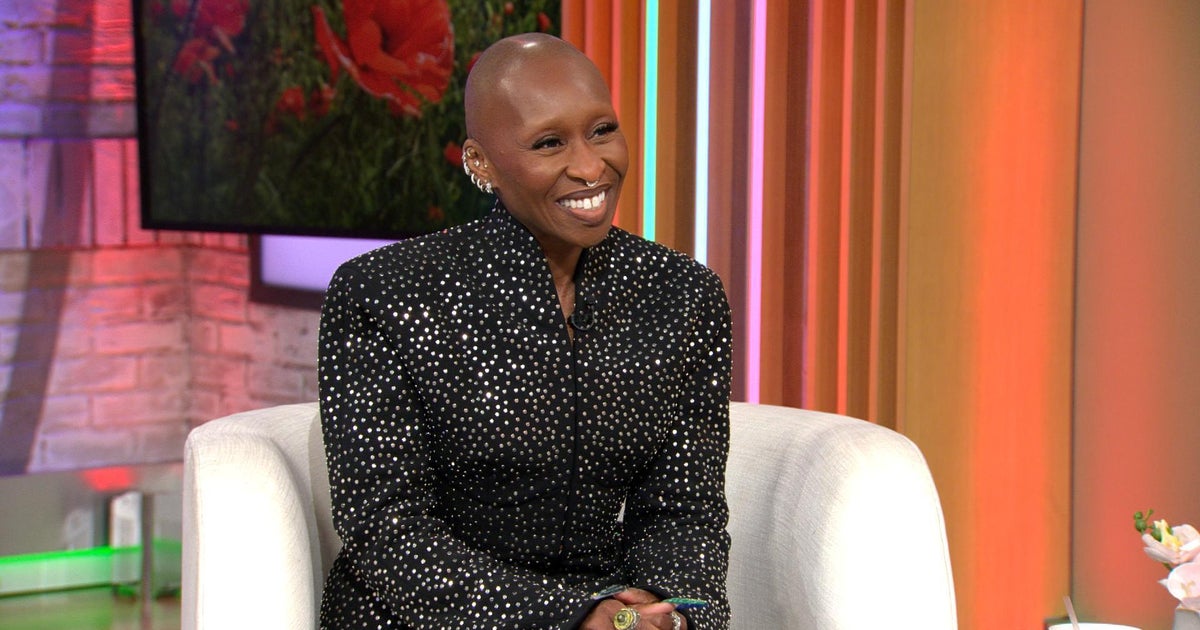Exonerated after spending 43 years in prison, Kevin Strickland reflects on life: "I still got a few years in me"
After 43 years behind bars, 62-year-old Kevin Strickland is starting a new life as a free man.
Last Tuesday, a Missouri judge overturned Strickland's 1979 conviction for a triple homicide and ordered he be immediately released. citing "clear and convincing" evidence that Strickland was wrongfully convicted.
In his first network television interview, Strickland described to CBS News' Erin Moriarty what it felt like leaving the jail.
"The day that I walked out, rolled out... Man, I'm [going to] enter into a space-age I know nothing about," said Strickland.
Strickland left prison with very little. The state won't provide him any financial assistance and even took away the wheelchair that he used. Strickland suffers from spinal stenosis that went untreated in prison. He can stand but not for long periods of time.
In the last few days, friends, family and strangers have rallied around him as he tries to start a life he never got to live.
Since he was released, Strickland has received more than $1 million in donations to a trust fund set up by the Midwest Innocence Project. He's hoping to use some of the donated money he received to get some treatment that will help him walk and get rid of the wheelchair
He also shaved his beard off, something he promised himself he would do once he became a free man. But after 43 years behind bars, some things are harder for Strickland to leave behind.
"I'm still referring to my bed as a bunk, as my room as a cell. Sleeping light, you know, paranoia. Always on alert. Suspicious of everything. Yeah, I'm still there. I haven't shook that off yet. Somebody shook my hand and I thought, 'What do you want?'" Strickland said.
He told Moriarty he is still adjusting and is learning how to use a cell phone. "I don't know how to turn it on. They're trying to move me with all the emojis and I'm trying to say hello," he said.
Strickland was sent to prison in 1979 after being wrongfully convicted of a triple homicide by an all-white jury. In May of 2021, the local prosecutor, Jean Peters Baker, declared Strickland factually innocent but had to fight the State Attorney General in court to secure Strickland's release. Baker said it was "surprising, discouraging, disheartening" to see how hard and long the process was to free Strickland.
"They wanted him to stay right where he was," Baker said.
But during a three-day hearing, Missouri Judge James Welsh did look at the evidence and ruled that "the court's confidence in Strickland's conviction is so undermined that it cannot stand."
Strickland said he found out he was going to be on his way home while watching daytime television.
"I'll watch soaps in the daytime, one in particular. I could hear other inmates banging on the door and beating on the wall, hollering my name. And I went up to the door and they said, 'You're getting out, you're getting out, you're getting out,'" Strickland recalled.
He could have been released decades earlier when he was offered a plea deal but Strickland said he wouldn't do that because he was innocent.
"Now that would have required me to lie, admit to a crime that I didn't do. I just didn't have that kind of lie in me," said Strickland.
"No regrets?" Moriarty asked.
"No. I'm sitting here today and I didn't do it. I still got a few years in me. And I'm just going to try to make the best of them the rest of the way," replied Strickland.
Strickland is focused on starting a life he says he never got to live including reconnecting and spending time with his daughter, who was seven weeks old when he was arrested. He said they plan to spend a week together doing everything they haven't been able to do. He said that he has no plans of slowing down.
"They try to tell me, "One step at a time. Slow down." But they didn't miss 43. I did. So, I gotta go," said Strickland.
The Missouri Attorney General's Office said it was defending "the rule of law" but that "the court has spoken," and it will not pursue further action. Strickland said he wants to get involved in the legislative process to help other inmates prove their innocence and guarantee financial compensation for future exonerees.



